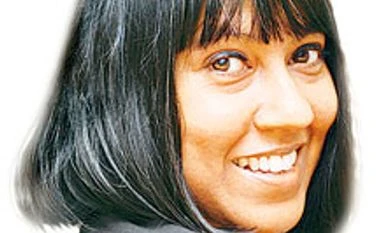But here’s another often overlooked contributory factor: the diverse roster of talent. Most significant European teams today include players from other nationalities, ethnicities and non-Christian religions. And all the players of these teams hone their skills in the acutely competitive multiracial, multicultural fields of European club football – an ironic truth at a time when immigration is straining European political unity.
Not that this is a new trend, but the point is worth remembering as footballers of non-white, non-Christian origin brace themselves for the particularly uncouth brand of racism for which Russian football fans have acquired global notoriety. The French team that won the World Cup in 1998 was the first time the world noticed – and France’s Algerian-origin captain Zinedine Zidane made a point of highlighting the multicultural composition of that winning team. The one that heads to Russia has almost no ethnic Frenchmen (it suffered some nasty racial hazing during a friendly tournament in Russia recently).
France is no outlier. The German team that won the championship in 2014 had 11 players of non-German origin – from Turkey, Poland, Ghana, Spain, Bosnia-Herzegovina and even Brazil (that country has lots of footballers to spare – they wear many national colours, including, once, for Japan!). Even as Germany’s football-crazy Chancellor suffered an electoral jolt for being “soft” on refugees, the team for the 2018 edition – tipped as favourites for back-to-back championships – has six players of foreign origin, at least two of whom are practising Muslims. With the exception of Spain, this multi-racial composition is common for the European teams that figure in FIFA’s top 10 rankings.
These rainbow teams do not mean that European society is less racist than Russia; just that in a big-bucks business like football, talent trumps xenophobia. In this perpetual battle, many European teams draw on the talent pools of their former colonial empires or from countries that once came under the Great Power spheres of influence in the 19th/20th centuries. Portugal (rank 4) has players from Brazil, Angola, Cape Verde; France (rank 7) counts Algerians, Guineans, Cameroonians, Senegalese, and Malians on its roster; Belgium (rank 3), of whom great things are expected this tournament, has nine players of African origin including its inspirational captain Vincent Kompany, who is part Congolese. England’s team (rank 12) has an overwhelming number of players descended from the Windrush generation and recent African immigrants like the supremely talented Raheem Sterling from Nigeria.
But countries without colonial legacies also have no problem inducting talent wherever they can find it. Thus, Switzerland (rank 6) has stars from Albania (Granit Xhaka), Xerdan Shaquiri (of Kosovo Albanian extract) and even Cameroon (Dreel Embolo, Switzerland’s most expensive player of all time). The unstable Balkans has been rich hunting ground for many teams.
How, then, to explain the sustained success of teams like Brazil and Argentina, the provenance of whose players are rooted in their countries? You only have to look at those lads to figure out that the teams don’t need to “import” multicultural talent; they already have it. Their tumultuous colonial legacies have bequeathed multi-racial populations – South American, African, Spanish, Brazilian and some German (especially after World War II) – that help produce an effortless assembly line of sublime talent.
This bounty bypasses the Russian team; even players from former Soviet nations and allies choose to play elsewhere. Fans in some clubs beg their team managements not to fire black players. The make monkey noises at those that do. They diss players from the Caucasus, Jews and Asians, according to one study. The lowest-ranked team to take the field at number 70, its obligatory presence as the host nation is courtesy the collusion between Fifa officials and Vladimir Putin’s football administration to win the bid for this edition of the tournament. As with its politics, in football too, Russia will discover that isolationism and xenophobia do not make winning propositions.
To read the full story, Subscribe Now at just Rs 249 a month
Already a subscriber? Log in
Subscribe To BS Premium
₹249
Renews automatically
₹1699₹1999
Opt for auto renewal and save Rs. 300 Renews automatically
₹1999
What you get on BS Premium?
-
Unlock 30+ premium stories daily hand-picked by our editors, across devices on browser and app.
-
Pick your 5 favourite companies, get a daily email with all news updates on them.
Full access to our intuitive epaper - clip, save, share articles from any device; newspaper archives from 2006.
Preferential invites to Business Standard events.
Curated newsletters on markets, personal finance, policy & politics, start-ups, technology, and more.
Need More Information - write to us at assist@bsmail.in
)